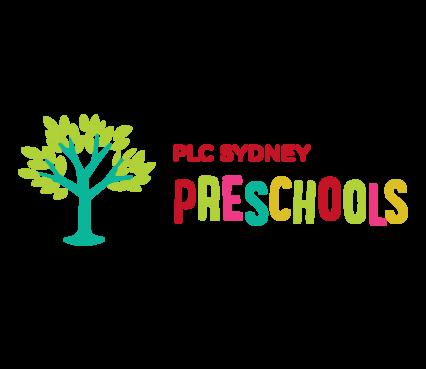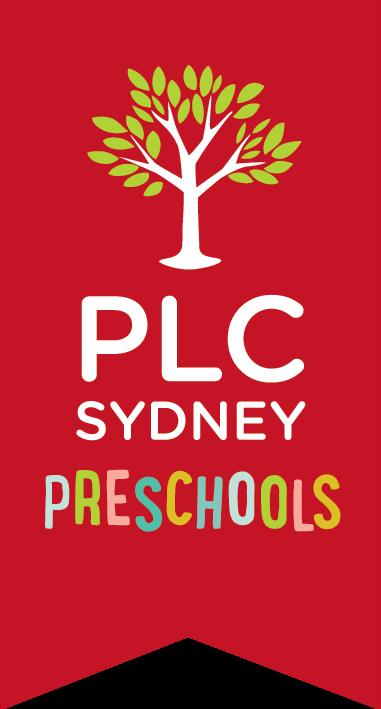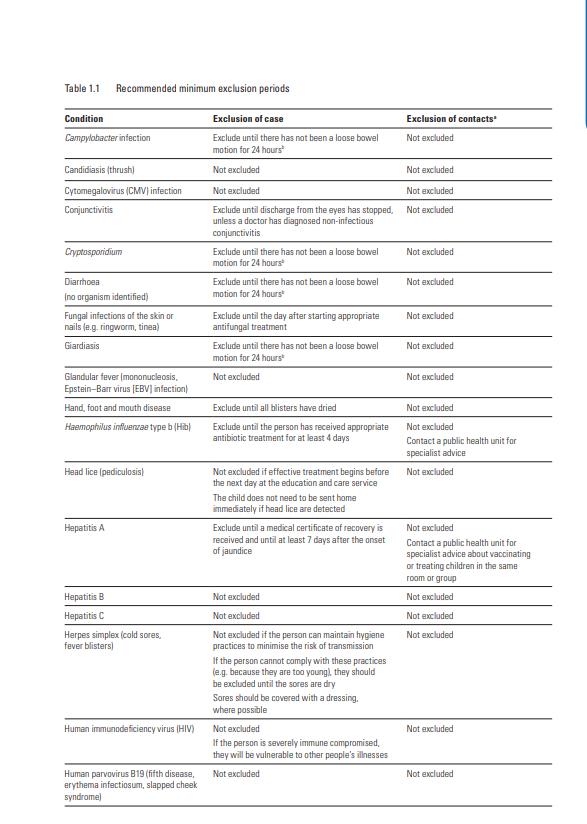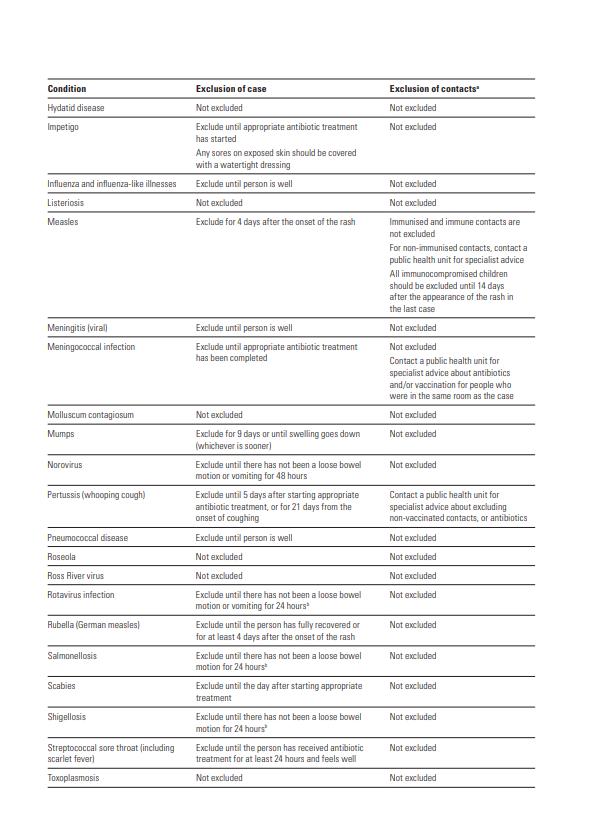

PLC SYDNEY PRESCHOOL INFECTIOUS DISEASES POLICY POL2.10.1. T (+61 2) 9704 5770 www.plc.nsw.edu.au F (+61 2) 9744 0519 ABN 62 778 320 798 E enquiries@plc nsw edu au 1 Knox St Ashfield 2131 CRICOS Provider Code: 02280D
Name of Policy PLC SYDNEY PRESCHOOL INFECTIOUS DISEASES POLICY
Policy Number POL2.10.1.
Policy Status APPROVED
Date Effective January 2020
Last Edited 1 May 2023
Date of Next Review 1 May 2025
Review Period Every two years or as required as a result of legislative changes
Contact Person Director of Preschool or Quality and Risk Manager
POL2 10 1 | PLC SYDNEY PRESCHOOL INFECTIOUS DISEASES POLICY Page 2
TABLE
CONTENTS 1 RELATED LEGISLATION AND REFERENCES 4 2 INTRODUCTION - POLICY STATEMENT 4 3 OUTCOMES 4 4 STRATEGIES 5 4.1 EFFECTIVE HYGIENE 5 4.2 EXCLUSION OF CHILDREN, EDUCATORS AND OTHER STAFF 5 4.3 MEDICAL CLEARANCE REQUIREMENTS 6 4.4 NOTIFICATION TO THE PUBLIC HEALTH UNIT 6 4.5 IMMUNISATION 6 4.6 CHILDREN VACCINATED OVERSEAS 7 5 ROLES AND RESPONSIBILITIES 7 6 RESOURCES/USEFUL LINKS 11 7 POLICY EVALUATION AND REVIEW 11 8 ACKNOWLEDGEMENT 12 POL2 10 1 | PLC SYDNEY PRESCHOOL INFECTIOUS DISEASES POLICY Page 3
OF
1 RELATED LEGISLATION AND REFERENCES
This information refers to Quality Area 2 of the National Quality Standards: Children’s Health and Safety.
● Education and Care Services National Law Act 2010: Section 167
● Education and Care Services National Regulations 2011: Regulations 78-80
● Work Health and Safety Act 2011
● Public Health Regulation 2012 and commenced along with Public Health Act 2010
● Public Health Amendment (Vaccination of Children Attending Child Care Facilities) Bill 2013
● Australian New Zealand Food Standards Code (FSANZ). RELATED LEGISLATION AND REFERENCES
2 INTRODUCTION - POLICY STATEMENT
The PLC Sydney Preschool is committed to providing a safe and healthy environment for all children, staff and any other persons attending the service by:
● Responding to the needs of the child or adult who presents with symptoms of an infectious disease or infestation while attending the service.
● Complying with current exclusion schedules and guidelines set by the Department of Health
● Providing up-to-date information and resources for families and staff regarding protection of all children from infectious diseases and blood-borne viruses, management of infestations and immunisation programs.
3 OUTCOMES
The way that children interact with each other and with adults in education and care services means that diseases can quickly spread in a variety of ways. Whilst it is not possible to prevent the spread of all infections and diseases, minimising the risk is enhanced through:
● Effective hand hygiene.
● Exclusion of ill children, educators and other staff
● Immunisation
(Staying Healthy: Preventing infectious diseases in early childhood education and care services 5th edition 2013)
POL2 10 1 | PLC SYDNEY PRESCHOOL INFECTIOUS DISEASES POLICY Page 4
4 STRATEGIES
4.1 EFFECTIVE HYGIENE
In order to prevent the spread of infectious diseases through interpersonal contact, the Preschool will adhere to the exclusion period table, published by the Department of Health.
The Preschool will maintain and promote effective hygiene practices, including:
● Effective daily cleaning procedures, including sanitising areas most commonly used e.g. door handles.
● Correct hand washing technique.
● Using standard precautions when handling blood, all body fluids, secretions and excretions, dried blood and other body substances
● Cleaning toys and other items that children are likely to put in their mouths, after use
● Raking sandpits often and/or securely covering them when not in use.
● Disposing of soiled items in a container that is inaccessible to children.
● Washing rubbish bins regularly.
● Actively promote hand washing and other hygiene practices with children and families
4.2 EXCLUSION OF CHILDREN, EDUCATORS AND OTHER STAFF INFECTIOUS DISEASES
In order to prevent the spread of infectious diseases through interpersonal contact, the Preschool will adhere to the exclusion period table, published by the Department of Health
POL2 10 1 | PLC SYDNEY PRESCHOOL INFECTIOUS DISEASES POLICY Page 5

POL2 10 1 | PLC SYDNEY PRESCHOOL INFECTIOUS DISEASES POLICY Page 6

POL2 10 1 | PLC SYDNEY PRESCHOOL INFECTIOUS DISEASES POLICY Page 7
FEVER
In children, a temperature over 38˚C indicates a fever. A fever is usually caused by an infection somewhere in the body. Some types of infections that lead to fever include:
● Viral (caused by a virus) - around nine out out of ten children with a fever will have a viral illness, such as cold, flu or gastroenteritis.
● Bacterial (caused by bacteria), such as some ear infections, pneumonia or urine infections
Therefore we require all children to be clear of a temperature of 38 degrees or above for at least 24 hours before returning to the Preschool.
In order to prevent the spread of infection and ensure the wellbeing of others, children with a temperature above 38˚C will be excluded from the Preschool and parents will be expected to be available to collect them promptly
Viral Gastroenteritis (gastro)
Common infection of the stomach and intestines that causes vomiting and diarrhoea
Gastro can be caused by many different viruses Examples of viruses that cause gastro are rotavirus and norovirus.
There are many other causes of gastro including bacteria, toxins, parasites, and some other diseases. Some of the Symptoms include: vomiting, watery diarrhoea,nausea, fever, abdominal pain and muscle aches. Children should not attend preschool until 48 hours after they no longer have symptoms (diarrhoea and vomiting).
4.3 MEDICAL CLEARANCE REQUIREMENTS
Infectious diseases that require a medical clearance before a child may return to the Preschool include, but is not limited to:
● An unknown persistent rash
● Chicken Pox
● Conjunctivitis (If discharging from the eyes)
● Diarrhea (If persisted for more than 48 hours)
● Diphtheria
● Hand, Foot and Mouth
● Haemophilus Influenzae Type B (Hib)
● Hepatitis A
● Impetigo
● Leprosy
● Measles
● Meningococcal
● Mumps
● Norovirus
● Pertussis (Whooping Cough)
● Poliomyelitis
● Rubella (German Measles)
● Tetanus
POL2 10 1 | PLC SYDNEY PRESCHOOL INFECTIOUS DISEASES POLICY Page 8
4.4 NOTIFICATION TO THE PUBLIC HEALTH UNIT
It is the Nominated Supervisors responsibility to notify the Public Health Unit on (02) 9382 8333 as soon as possible after being made aware that a child enrolled in the Preschool is suffering from one of the following vaccine preventable diseases:
● Diphtheria
● Mumps
● Poliomyelitis
● Haemophilus Influenzae Type B (Hib)
● Rubella (German Measles)
● Tetanus
● Measles
● Pertussis (Whooping Cough)
4.5 IMMUNISATION
The NSW Public Health Act 2010 requires parents/guardians to provide all early education and care services with an up to date Australian Immunisation Register (AIR) Immunisation History Statement which shows that the child is with their scheduled vaccinations OR cannot be immunised for medical reasons OR an AIR Immunisation History Form for a child on a catch-up schedule This must be provided before the child can be enrolled at any PLC Sydney Preschool.
The following are the only forms that can be accepted before the child can be formally enrolled.
● An AIR Immunisation History Statement which shows that the child is up to date with their scheduled vaccinations OR
● An AIR Immunisation History Form on which the immunisation provider has certified that the child is on a recognised catch-up schedule (temporary for 6 months only) OR
● An AIR Immunisation Medical Exemption Form which has been certified by a GP. No other form of documentation is acceptable i e the Interim Vaccination Objection Form or Blue Book. The documents will be stored by the Director of the PLC Sydney Preschool, in a secure location for three years unless a child transfers to another child care centre
4.6 CHILDREN VACCINATED OVERSEAS
If your child was immunised overseas, their immunisation record must be checked by a GP who will transfer the information to the AIR Document Parents will then need to request an updated AIR Immunisation History Statement to provide to PLC Sydney Preschools prior to enrolment.
POL2 10 1 | PLC SYDNEY PRESCHOOL INFECTIOUS DISEASES POLICY Page 9
5 ROLES AND RESPONSIBILITIES
To ensure the Preschool operates in line with the Education and Care Services National Law and National Regulations 2011 including:
ROLE
Approved Provider
AUTHORITY/RESPONSIBILITY FOR
● Ensuring that where there is an occurrence of an infectious disease at the service, reasonable steps are taken to prevent the spread of that infectious disease (Regulation 88 (1))
● Ensuring that where there is an occurrence of an infectious disease at the service, a parent/guardian or authorised emergency contact of each child at the service is notified of the occurrence as soon as is practicable (Regulation 88(2)).
● Ensuring that information from the Department of Health about the recommended minimum exclusion periods is displayed at the Preschool, is available to all stakeholders and is adhered to in the event of an outbreak of an infectious disease (as designated by the Department of Health - refer to Definitions).
● Ensuring that the parent/guardian are informed within 24 hours of becoming aware that an enrolled child is suffering from:
a) Pertussis, or
b) Poliomyelitis, or
c) Measles, Mumps, or
d) Rubella, or
e) Meningococcal C
● Ensuring that information from the Department of Health about the recommended minimum exclusion periods is displayed at the Preschool, is available to all stakeholders and is adhered to in the event of an outbreak of an infectious disease (as designated by the Department of Health - refer to Definitions).
● Ensuring that a child who is not immunised against a vaccine-preventable disease does not attend the Preschool when an infectious disease is diagnosed, and does not return until there are no more occurrences of that disease at the service and the recommended minimum exclusion period has ceased (Regulation 85(2) of the Public Health and Wellbeing Regulations 2009).
● Notifying the Regulatory Authority within 24 hours of a serious incident including when a child becomes ill at the service or
POL2 10 1 | PLC SYDNEY PRESCHOOL INFECTIOUS DISEASES POLICY Page 10
Nominated Supervisor
urgent medical attention is sought while the child is attending the service
● Ensuring that appropriate and current information and resources are provided to staff and parents/guardians regarding the identification and management of infectious diseases, blood-borne viruses and infestations.
● Keeping informed about current legislation, information, research and best practice.
● Ensuring that any changes to the exclusion table or immunisation schedule are communicated to staff and parents/guardians in a timely manner.
● Contacting the parents/guardians of a child suspected of suffering from an infectious or vaccine- preventable disease, or of a child not immunised against a vaccine preventable disease that has been detected at the service, and requesting the child be collected as soon as possible.
● Notifying a parent/guardian or authorised emergency contact person when a symptom of an excludable infectious illness or disease has been observed.
● Ensuring that a minimum of one staff with current approved first aid qualifications is in attendance and immediately available at all times the service is in operation.
● Establishing good hygiene and infection control procedures, and ensuring that they are adhered to by everyone at the service.
● Ensuring the exclusion requirements for infectious diseases are adhered to as per the recommended minimum exclusion periods notifying the Approved Provider and parents/guardians of any outbreak of infectious disease at the service, and displaying this information in a prominent position.
● Advising parents/guardians on enrolment that the recommended minimum exclusion periods will be observed in regard to the outbreak of any infectious diseases or infestations
● Advising the parents/guardians of a child who is not fully immunised on enrolment that they will be required to keep their child at home when an infectious disease is diagnosed at the service, and until there are no more occurrences of that disease and the exclusion period has ceased
● Requesting that parents/guardians notify the service if their child has, or is suspected of having, an infectious disease or infestation.
POL2 10 1 | PLC SYDNEY PRESCHOOL INFECTIOUS DISEASES POLICY Page 11
Educators
● Providing information and resources to families to assist in the identification and management of infectious diseases and infestations
● Maintaining confidentiality at all times.
● Provide relevant sourced materials to families.
● Ensuring that an “Incident, Injury, Trauma and Illness” record is completed as soon as practicable or no later than 24 hours of the illness occurring
● Ensure that any children that are suspected of having an infectious illness are responded to and their health and emotional needs supported at all times.
● Implement appropriate health and safety procedures, when tending to ill children.
● Ensure that families are aware of the need to collect their children as soon as practicable to ensure the child’s comfort
● Maintain their own immunisation status, and advise the Approved Provider/Nominated Supervisor of any updates to their immunisation status.
● Provide varied opportunities for children to engage in hygiene practices, including routine opportunities, and intentional practice
● Observing signs and symptoms of children who may appear unwell, and informing the Nominated Supervisor.
● Providing access to information and resources for parents/guardians to assist in the identification and management of infectious diseases and infestations
● Monitoring any symptoms in children that may indicate the presence of an infectious disease.
● Maintaining confidentiality at all times.
Families
● Providing Immunisation documentation upon enrolment and as administered.
● Keep their children at home if they are unwell or have an excludable infectious disease.
● Keep their children at home when an infectious disease has been diagnosed at the service and their child is not fully immunised against that infectious disease, until there are no more occurrences of that disease and the exclusion period has ceased.
● Inform the service promptly if their child has an infectious disease or has been in contact with a person who has an infectious disease.
● Be available to arrange prompt collection of their child by either themselves or an authorised contact, when their child is deemed unwell, following contact by the Preschool
POL2 10 1 | PLC SYDNEY PRESCHOOL INFECTIOUS DISEASES POLICY Page 12
6 RESOURCES/USEFUL LINKS
Immunisation Toolkit
● https://www.health.nsw.gov.au/immunisation/Publications/immunisation-enrolment-to olkit.pdf
NSW Immunisation Schedule July 2013
● https://www.health.nsw.gov.au/immunisation/publications/nsw-immunisation-schedul e.pdf
Vaccination Q&A
● https://www health gov au/topics/immunisation/when-to-get-vaccinated/immunisation -for-infants-and-children
Staying Healthy: Preventing infectious diseases in early childhood education and care services
5th edition 2013 and Exclusion period for infectious diseases table:
● http://www nhmrc gov au
7 POLICY EVALUATION AND REVIEW
This Policy will be monitored and reviewed to ensure compliance with legislative requirements and unless deemed necessary through the identification of practice gaps, the Preschool will review this Policy every two years
In accordance with R 172 of the Education and Care Services National Regulations, the Preschool will ensure that families of children enrolled at the service are notified at least 14 days before making any change to a policy or procedure that may have significant impact on the provision of education and care to any child enrolled at the Preschool; a family’s ability to utilise the Preschool; the fees charged or the way in which fees are collected
May 2023
Removal of Covid requirements. Addition of exclusions May 2025
Policy review date Modifications Next review date
POL2 10 1 | PLC SYDNEY PRESCHOOL INFECTIOUS DISEASES POLICY Page 13





